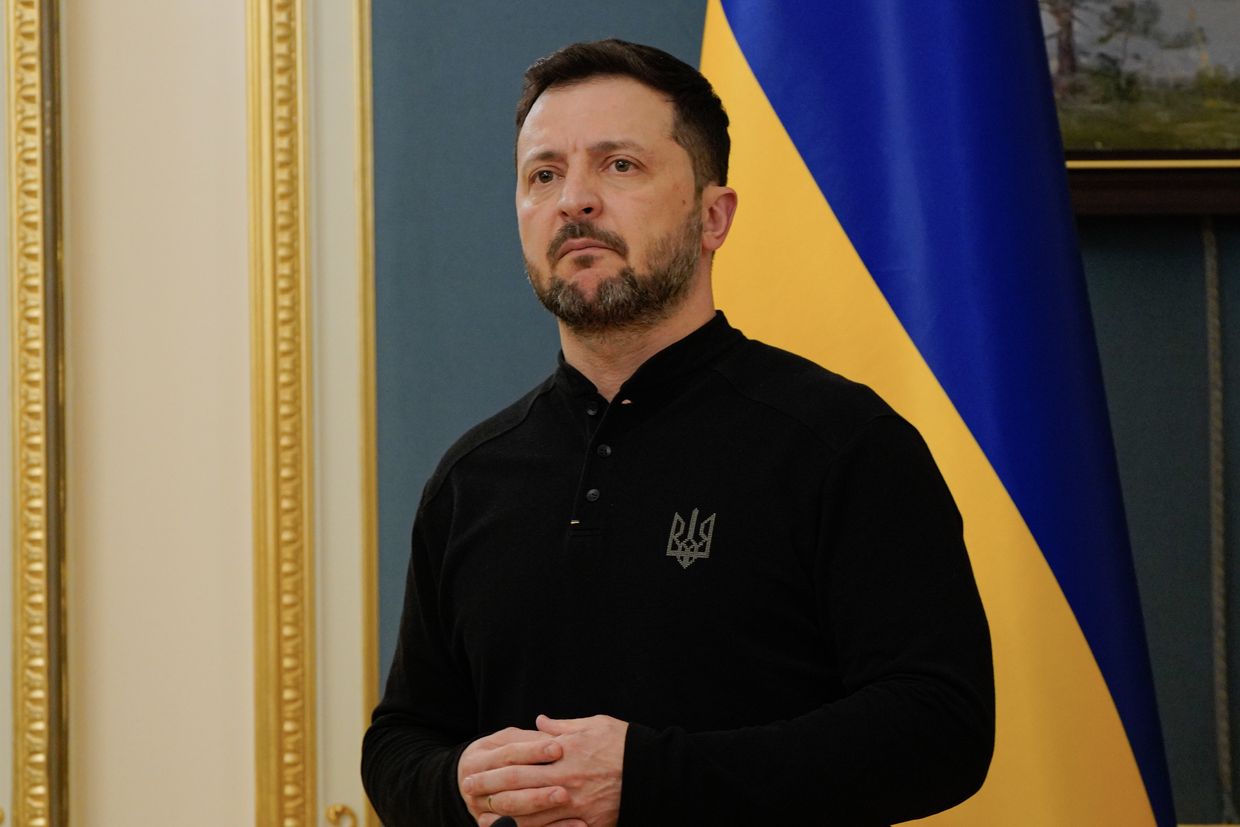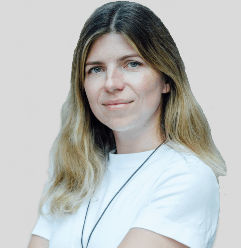Backroom diplomacy and battlefield reality: Ukraine at the IMF Spring Meetings

Denys Shmyhal, Ukraine's prime minister, during a bilateral meeting with Janet Yellen, U.S. treasury secretary (not pictured) at the annual meetings of the International Monetary Fund (IMF) and World Bank in Washington, DC, U.S., on April 17, 2024. (Samuel Corum/Bloomberg via Getty Images)

Maria Repko
deputy director of the Kyiv-based Center for Economic Strategy
Visiting Washington during the International Monetary Fund and World Bank Spring Meetings this April felt surreal. The weather was nice, but the air was heavy with the uncertainty of the tariff war, President Donald Trump's administration’s criticisms of international institutions, and the far more immediate tension of geopolitics between Ukraine and the U.S.
As reported by the Guardian, IMF Managing Director Kristalina Georgieva quoted the movie Bridge of Spies, emphasizing the need to stay calm and focused amid chaos. A U.S. lawyer in the movie tells a Soviet spy that he has been appointed to defend him, and that he will probably be executed. “You don’t seem alarmed,” he says, to which the spy replies, “Would it help?” The metaphor also fits Ukraine’s situation perfectly: in 2025, it is once again navigating perilous waters, maybe even worse than a year before.
For Ukraine, this year's IMF meetings were not center stage, but rather the backdrop for two monumental, intertwined developments. First, there was the critical minerals agreement — a deal that could shape Ukraine's economic future by anchoring its resource sector to the U.S.’s sphere of influence. Second, there were ongoing negotiations towards a peace settlement with Russia, where Trump has actively played an intermediary role. Despite developments, in both instances, relations remained strained.
These developments far overshadowed the typical Spring Meeting business, at least for the Ukrainian delegation. For Ukraine, Washington 2025 was therefore less about public speeches and more about navigating a complex maze of alliances, negotiations, and backroom deals.
The progress on the critical minerals deal brought cautious optimism. Prime Minister Denys Shmyhal stated that the latest draft (signed on April 30) better aligns with both Ukrainian and EU priorities: crucially, previous Western aid to Ukraine won't be retroactively counted as debt, and no existing Ukrainian revenue streams will be diverted to fund new projects. But memories of the last draft's public leak keep everyone on edge.
The peace deal, however, remains the major stumbling block in Ukraine-U.S. relations. While Donald Trump appears determined to end the war at any cost, it is the Ukrainian people who are expected to bear that cost, and they are far from willing to do so. The complexities of the relationship were even spotlighted at a special event at the Spy Museum, where former National Security Council spokesperson Emily Horne remarked, “We do not have a strong track record of appeasing dictators” — a sentiment that resonates deeply with most Ukrainians.
By the weekend, however, all conversations turned to the extraordinary scene that had unfolded: after a scandal at the White House, a hastily organized meeting between President Volodymyr Zelensky and Trump at Pope Francis's funeral became the new focal point. The symbolism was too rich to ignore, and it fuelled new hopes in a lot of hearts.
Ukraine's Finance Minister Serhiy Marchenko was also in Washington, pursuing the task of securing external funding for 2026. His mission once again underscored Kristalina Georgieva's steadfast commitment to a “no-alarm” approach. As usual, the IMF emphasized the familiar refrain: the need for stronger revenue generation and disciplined fiscal policy. While essential, these prescriptions have become an almost ritualistic part of Ukraine’s dialogue with international lenders.
Meanwhile, concerns over Ukraine's debt sustainability continue to loom large, threatening to narrow the space for additional aid. True to form, both the IMF and the World Bank remain skeptical about confiscating frozen Russian assets. With new grants increasingly scarce and debt sustainability concerns limiting access to additional loans, advancing the effort to seize Russian assets remains a critical task Ukraine cannot afford to let slip.
Finally, the Innovation Days at Ukraine House unfolded in stark contrast to the grim reality back home. Beneath the bright Washington sun, with green lawns and easy conversations, Ukrainian officials and guests networked and participated in panels.
Yet even as ideas were exchanged and opportunities discussed, many attendees kept refreshing their phones: that very morning, Kyiv, the capital of Ukraine, had endured a deadly Russian attack. While bombs fell on those who remained at home, Ukraine’s delegation in Washington tried to balance hope for the future with the horror unfolding in real time.
This article was prepared with the support of the European Union and the International Renaissance Foundation within the framework of the European Renaissance of Ukraine joint initiative. The article represents the position of the authors and does not necessarily reflect the position of the European Union or the International Renaissance Foundation.










